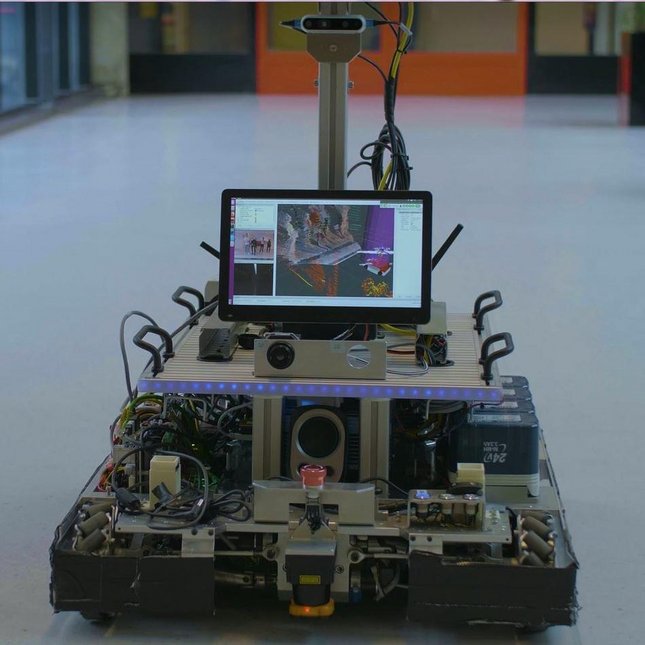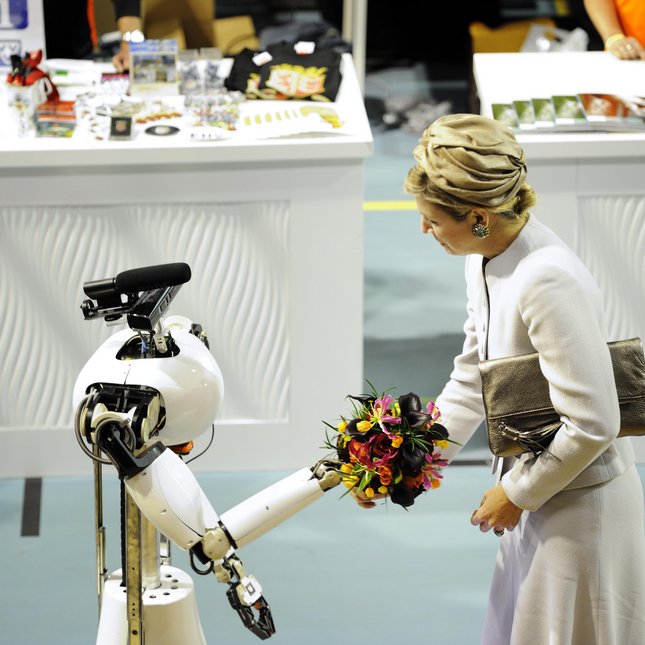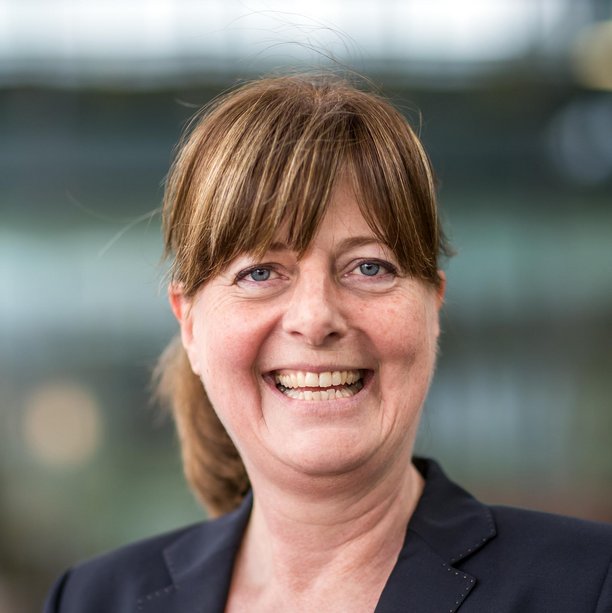FAST consortium - new Frontiers in Autonomous Systems Technology
The goal of the FAST (new Frontiers in Autonomous Systems Technology) project is to develop a methodology to assess the state of a semi-open world in the context of its task at hand. Semi-open means that the robot will be able to explicitly account for a limited set of potential events and artifacts in the world that may or may not occur, such as in warehouse logistics, industrial cleaning and farm automation.

Industry benefits include:
- Robot paths (motion planning) can be flexibly planned
- Learning of environment and environment history
- Reduced development time as a robot task specification can be programmed on a high (semantic) level
- Re-usability of existing software by employing task-skill-motion architecture
- Infrastructure-less localization
- Socially aware navigation and interaction
More information about this consortium:
FlexCRAFT consortium - Cognitive Robots for Flexible Agro Food Technology
The FlexCRAFT consortium (Cognitive Robots for Flexible Agro Food Technology) addresses the scientific challenge of robustly dealing with large variations in the shape, size and softness of agro-food products in combination with variations in environment and tasks. It aims to equip robot technology with generic capabilities in active perception, planning and control, world modeling and gripping and manipulation. As these cognitive robots will have the flexibility to deal with variations in products, environments and tasks, the efficiency and quality of agro-food handling can be greatly improved.

ROBOTICS AT TU/E
Eindhoven University of Technology (TU/e) pushes the frontier of robotics technologies in its many fields of expertise and applications. TU/e aims to positively impact our societal challenges in healthcare, energy, mobility and food.
Robot systems like manipulators, mobile robots, autonomous cars, surgical systems et cetera are a combination of many technologies and fields of expertise. Our research extends to many of those and includes expertise in autonomy, control systems, locomotion, mechatronics, artificial intelligence (machine learning / deep learning), material sciences, electronics, computer sciences, design and user interfacing. It also encompasses less robot-centric expertise like the design of robot based system level factory solutions, its embedding in organizations and the study of its impact on we as humans and our society.

